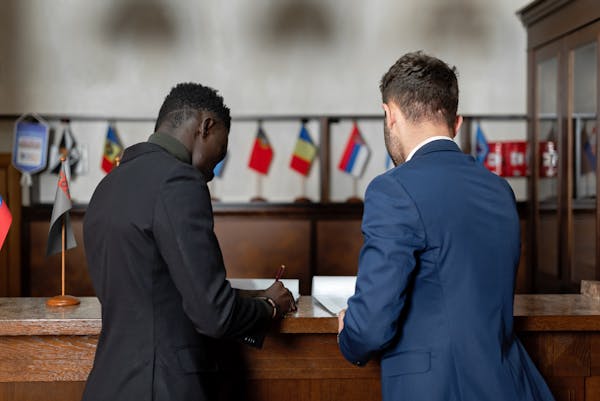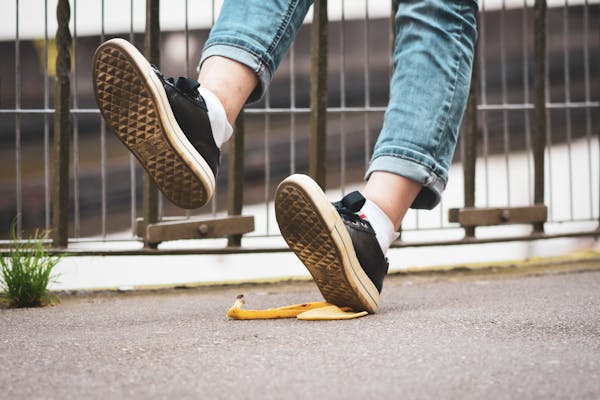
Have you ever wondered how police officers maintain order and control in chaotic situations? One of the tools they use might surprise you: sound. Yes, that’s right – the sound of police sirens, megaphones, and even music can have a powerful impact on our behavior and emotions. In this blog post, we’ll take a behind-the-scenes look at how police use sound to keep people safe and explore the fascinating science behind why certain sounds affect us more than others. So turn up your volume and get ready to learn about the sound of the police!
How police use sound
Police officers use a variety of sounds to communicate with the public and maintain order. One of the most common is the police siren, which can be heard from a distance and alerts drivers to pull over or clear the way for emergency vehicles. The sound of a police megaphone is also frequently used to give instructions or warnings in crowded areas.
In addition, some police departments have started using music as a tool for crowd control. For example, during protests or demonstrations, they may play calming music to prevent tensions from escalating or upbeat music to boost morale among officers.
Another type of sound that has been gaining popularity among law enforcement agencies is acoustic deterrents. These are high-pitched tones that are designed to be unpleasant for humans and animals alike, making them effective at dispersing crowds or deterring loiterers.
Sound plays an important role in how police officers interact with the public and maintain safety in various situations.
The science behind why sound affects us the way it does
Sound is an essential part of our daily lives, and it affects us in many ways. But have you ever wondered why some sounds are more appealing to us than others? Or why loud noises can make us feel stressed or anxious?
The science behind how sound affects us starts with the ear. The ear is a complex organ that detects vibrations in the air and translates them into electrical signals that our brain can interpret as sound. Different parts of the inner ear respond to different frequencies, which is why we can distinguish between high-pitched sounds like birds chirping and low-pitched ones like bass music.
But it’s not just about what we hear; it’s also about how we hear it. Sound waves travel through the air and into our ears, causing tiny hairs inside our ears to vibrate. These vibrations then send signals to our brains that trigger emotional responses such as happiness, fear, or excitement.
Research has shown that certain types of sounds can have physiological effects on our bodies too. For example, studies have found that listening to relaxing music can lower blood pressure and reduce stress levels. On the other hand, exposure to constant loud noise has been linked with hearing damage, sleep disturbances and increased risk for heart disease.
In conclusion,the science behind how sound affects us is fascinating because it involves both biological reactions within the body as well as psychological experiences in response to different types of sounds. By understanding these mechanisms better,police forces around the world will be able use this knowledge effectively when trying to control crowds or maintain social order by using appropriate sound stimuli at specific times
The different types of sounds police use
Police officers use a variety of sounds to maintain order and communicate with the public. One of the most common is the police siren, which can be heard from a distance and alerts drivers to move out of the way. These sirens are typically loud and piercing, designed to grab attention quickly.
Another type of sound that police use is verbal commands. Officers may shout orders at suspects or crowds in order to control behavior and prevent escalation. The tone and volume of their voice can convey authority and urgency.
In addition, some police departments use less obvious forms of sound like white noise machines or ear-piercing sonic weapons that emit high-frequency tones designed to disperse crowds without causing physical harm. These devices have been controversial due to concerns about their potential negative effects on individuals’ health.
Regardless of the specific type of sound used by law enforcement, it’s important for officers to balance effectiveness with minimizing unnecessary harm or discomfort caused by excessive noise levels.
Why some people are more affected by sound than others
Have you ever wondered why some people seem more sensitive to certain sounds than others? From the sound of a police siren to the drip of a faucet, different noises can have vastly different effects on individuals.
One explanation for this could be individual differences in auditory processing. Some people may have a heightened sensitivity to certain frequencies or pitches, while others may not register those same sounds as strongly.
Furthermore, past experiences and associations with specific sounds can also play a role in how they affect us. For example, if someone has experienced trauma related to loud noises such as explosions or gunshots, they may be particularly triggered by similar sounds.
It’s important to note that being highly affected by sound is not necessarily negative. In fact, it can sometimes be advantageous in professions such as music production or law enforcement where acute attention to sound is necessary for success.
However, for those who experience discomfort or distress from certain noises on a regular basis, there are ways to mitigate their impact. Seeking therapy or counseling can help address any underlying issues contributing to hypersensitivity and provide coping mechanisms for managing reactions during triggering situations. Additionally, using noise-cancelling headphones or earplugs when possible can offer relief from overwhelming stimuli.
How to protect yourself from the effects of sound
In today’s world, it’s nearly impossible to avoid sound altogether. Whether it be the blaring of car horns on the street or constant chatter in a crowded cafe, sound is everywhere we go. However, some individuals are more sensitive to certain types of sounds than others and may experience negative effects such as headaches and anxiety.
So how can you protect yourself from these negative effects? One option is to invest in noise-cancelling headphones or earplugs when you know you’ll be exposed to loud noises for an extended period of time. These devices will help block out excessive noise and give your ears a break.
Another way to protect yourself from harmful sound levels is by taking regular breaks from noisy environments. Step outside for some fresh air or take a walk around the block – this will not only help reduce your exposure to loud sounds but also provide mental clarity.
Additionally, practicing mindfulness techniques such as meditation can help lower stress levels caused by excessive noise exposure. Taking care of your overall health through proper diet and exercise can also improve your body’s ability to cope with stressors like noise pollution.
By implementing these simple strategies into daily life, you can minimize the negative impacts that excessive noise exposure has on both your physical and mental well-being.
Conclusion
The use of sound by police may seem like a simple tactic, but it has complex effects on individuals and crowds. By understanding the science behind how sound affects us, we can better understand why certain sounds are used and how they can be either helpful or harmful depending on their usage.
It’s important to remember that some people may be more affected by sound than others, and therefore it is crucial for law enforcement to consider this when using sound as a tool for maintaining order.
If you find yourself in a situation where you are being exposed to loud sounds from police or other sources, there are steps you can take to protect yourself. These include wearing earplugs or noise-cancelling headphones if possible, moving away from the source of the noise if safe to do so, and taking breaks in quieter areas when necessary.
While the use of sound by police may not always be appreciated by everyone, it remains an effective tool in maintaining public safety. By understanding how it works and its potential effects on us as individuals, we can work towards ensuring that its usage is responsible and respectful of all members of our communities.






